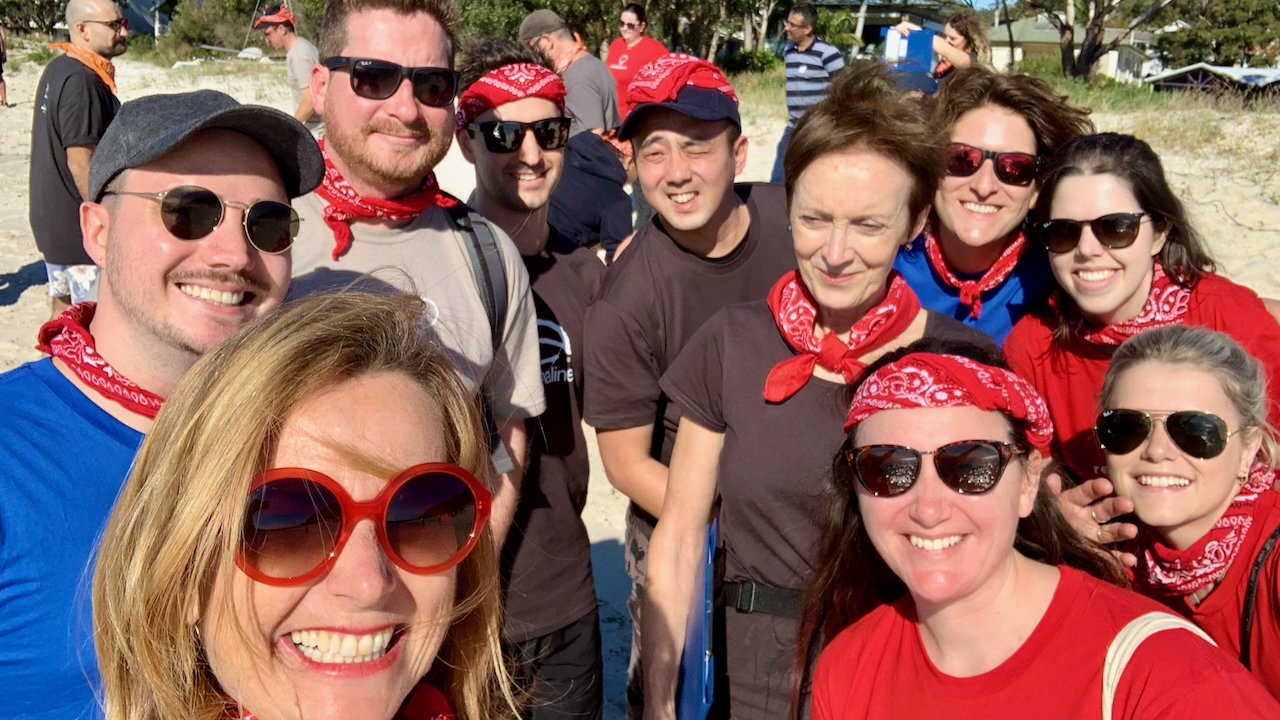There is a moment that I have witnessed hundreds of times in my career, both in the large corporations I worked for and in the businesses I have built and invested in. It is a moment that is intended to be a celebration, a reward for excellence, but it so often becomes the starting point of a quiet tragedy.
It is the moment we take our best salesperson, our most brilliant engineer, or our most efficient operator—a true star in their role—and we "reward" them with a promotion to manager.
We assume that because they were brilliant at doing the work, they will automatically be brilliant at leading others to do the work. This is one of the most flawed and costly assumptions in the entire world of business.
The truth is, the skills that make you a great individual contributor are often the polar opposite of the skills required to be a great leader of people. The leap from "doer" to "leader" is not a step up on the same ladder; it is a leap onto a completely new ladder, on a completely different wall, requiring a completely new way of climbing.
And we are failing our new managers. We throw them into the deep end with no training, no support, and no life raft, and then we wonder why they struggle. We wonder why their teams are disengaged, why their top performers start to leave, and why they themselves, our former "stars," become stressed, overwhelmed, and unhappy.
After decades of leading and developing leaders at all levels, from the front lines at RedBalloon to the executive teams of major corporate boards, I have come to see that true leadership is not a title. It is a skill. And like any skill, it can be learned, it can be practiced, and it can be mastered.
So today, I want to give you my definitive, practical guide for any new manager, or any leader who is responsible for developing them. We are going to go beyond the management theory and into the real, human skills that make a great leader. These are the five fundamental shifts in mindset and skill that every new manager must master to not just survive, but to thrive.

The Great Transition: From "Me" to "We"
Before we dive into the specific skills, we must start with the single, most important mindset shift that underpins all of them. The journey to becoming a manager is a journey from "me" to "we."
As an individual contributor, your success was defined by your personal output. Your achievements. Your results. Your glory.
The moment you become a manager, that definition becomes obsolete. Your success is no longer defined by your own output. It is defined entirely by the success of your team. Your job is no longer to be the star player scoring all the goals. Your job is to be the coach who creates an environment where every single player on your team can score.
This is a profound and often difficult ego-shedding process. You have to learn to find your satisfaction not in doing the work yourself, but in seeing others succeed. You have to be willing to work in the background so that your team can shine in the spotlight. Any new manager who cannot make this fundamental psychological shift from "me" to "we" is doomed to fail.
Once you have embraced this new identity, you are ready to start building the skills.
The 5 Essential Leadership Skills Every Manager Needs

Skill #1: The Architect of Clarity (From Doing Tasks to Setting Direction)
The number one job of any leader is to provide clarity. In the absence of clarity, your team will be filled with confusion, anxiety, and wasted effort. As an individual contributor, your job was to do the tasks you were given. As a manager, your job is to ensure every single person on your team knows the "why" behind their tasks.
- You Must Be a Master Translator: You must be able to take the high-level strategic goals of the business and translate them into a clear, compelling mission for your team. You need to be able to answer, for every single person who reports to you, the question: "How does my daily work contribute to the company's success?" When people understand the "why," their work is no longer just a to-do list; it is a mission.
- You Must Set Crystal-Clear Expectations: Every member of your team needs to know, without a shadow of a doubt, what "good" looks like. This means setting clear, measurable Key Performance Indicators (KPIs). It means defining not just the "what" (the goals), but also the "how" (the values and behaviours that are expected).
- You Must Master the Art of the 1:1 Meeting: The weekly one-on-one meeting is the single most important tool a manager has. It is your dedicated time to provide clarity, to remove roadblocks, and to ensure alignment. This is not just a status update. It is a coaching session. A great 1:1 should be 20% about looking back (reviewing progress) and 80% about looking forward (discussing priorities, challenges, and development).
Skill #2: The Coach (From Being the Expert to Building Expertise)
As a star individual contributor, you were likely the "go-to" expert. You had all the answers. When someone on your team was stuck, your instinct was to jump in, take over the keyboard, and solve the problem for them. This feels helpful, but it is a catastrophic mistake for a new manager.
When you solve the problem for your team member, you do three destructive things:
- You rob them of a learning opportunity.
- You send a message that you don't trust them to figure it out themselves.
- You create a culture of dependency, where you become the bottleneck for every single problem.
Your job is no longer to be the expert with all the answers. Your job is to be the coach who is brilliant at asking the right questions. You must move from providing solutions to building capability.
- Embrace the Question, "What have you tried so far?": This is the most powerful question in a manager's toolkit. It forces your team member to think for themselves and shifts the dynamic from "please fix this for me" to "let's solve this together."
- Learn a Simple Coaching Framework: You don't need a coaching certificate. Learn a simple model like the GROW (Goal, Reality, Options, Will) model. It gives you a structured way to guide a conversation that helps your team member find their own solution.
- Differentiate Your Coaching: As I discussed in my podcast on transformational leadership, you can't lead everyone the same way. Your star performer needs to be challenged and stretched. A promising junior needs more guidance and support. A great coach adapts their style to the needs of the individual.

Skill #3: The Feedback Giver (From Avoiding Conflict to Embracing Candour)
This is where so many new managers fail. The fear of having a difficult conversation, of hurting someone's feelings, of not being liked, can be paralyzing. And so, they avoid it. They let small performance issues slide, they bottle up their frustrations, and they resort to vague, "drive-by" feedback.
A lack of honest, constructive feedback is not kindness; it is a profound act of unkindness. It allows your team members to operate in the dark, unaware of where they need to improve. It allows small problems to fester and grow into giant, unfixable ones.
A great leader understands that radical candour—the ability to challenge directly while caring personally—is the foundation of a high-performing team.
- Make Feedback Normal, Not a National Emergency: Feedback should not be a scary, once-a-year event in a formal performance review. It should be a normal, frequent, and even casual part of your daily interactions. A simple, "Hey, can I give you some quick feedback on that email?" makes it a low-stakes, continuous process.
- Be Specific and Behaviour-Based: Vague feedback like "you need to be more proactive" is useless. Specific, behavioural feedback is actionable. "In the team meeting this morning, I noticed you had a great idea but didn't speak up. In the future, I'd love for you to share those ideas with the group. Your voice is important."
- Focus on the Future, Not Just the Past: The purpose of feedback is not to criticise the past; it is to improve the future. End every piece of constructive feedback with a forward-looking, collaborative question: "How can I help you with that?" or "What support do you need to make that happen next time?"
Skill #4: The Culture Champion (From Individual Contributor to Role Model)
As an individual, you were responsible for your own behaviour. As a manager, you are the chief architect and role model for your team's culture. Your team will not listen to the values written on the wall; they will look at your actions and take their cues from you.
You are the culture. Your every action—how you show up to meetings, how you speak about other departments, how you handle a mistake, how you celebrate a win—is a powerful signal that shapes the "unwritten rules" of how your team operates.
- You Must Master the Art of Recognition: You are the primary engine of appreciation for your team. As I explored in depth in my post on employee recognition programs in Australia, this is about more than just a bonus. It's about the specific, timely, and authentic acknowledgement of great work and, more importantly, great behaviours.
- You Must Be the Chief Obstacle Remover: Your job is to protect your team from the organisational "sludge" that gets in their way. Whether it's a clunky process, a lack of resources, or a conflict with another department, a great manager runs interference so their team can focus on doing their best work.
- You Must Own the Failures and Share the Successes: When your team succeeds, you must push them into the spotlight. When your team fails, you must stand in front and take the responsibility. This creates a profound sense of psychological safety and trust.
Skill #5: The Talent Magnet (From Doing Your Job to Developing Your People)
Finally, a transactional manager sees their team as a set of resources to get a job done. A transformational leader sees their team as a portfolio of talent to be developed and grown.
Your ultimate legacy as a leader is not the projects you completed, but the people you developed. A great manager is a talent magnet. They build a reputation as someone who grows people, and the best people will fight to come and work for them.
- Have Career Conversations: You must be having regular, explicit conversations with your team members about their long-term career aspirations. "Where do you want to be in two years? What skills do you want to learn? What experiences do you need to get there?"
- Be a "Talent Broker": A great leader is always looking for opportunities to connect their people with new projects, mentors, or roles (even outside their own team!) that will help them grow. It might seem counter-intuitive to help your best person find their next role in another department, but this "generosity of spirit" is what builds a reputation as a true talent developer.
- The Ultimate Test: The ultimate measure of your success as a leader is this: is your team better off for having been led by you? And have you developed a successor who could step up and do your job tomorrow?

The Most Important Work You Will Ever Do
The leap from doer to leader is not an easy one. It is a journey that requires humility, courage, and a deep commitment to your own personal growth. It requires you to unlearn the very habits that once made you successful.
But it is also the most important and rewarding work you will ever do.
To be a great leader of people is to have a profound and positive impact on the lives of others. It is to build a team that is not just productive, but joyful. It is to create an environment where people feel safe, where they can learn and grow, and where they can do the best work of their careers.
This is the real work of leadership. And it is a skill worth mastering.
What do you believe is the single most important, yet most overlooked, skill for a new manager? I would love to hear your thoughts and experiences in the comments below.
Frequently Asked Questions (FAQs) on Leadership Skills for Managers
What is the main difference between being a manager and being a leader?
The main difference lies in their focus: management is about executing tasks and maintaining systems, while leadership is about inspiring and empowering people. A manager ensures the team is doing things right, focusing on processes and efficiency. A leader ensures the team is doing the right things, focusing on vision, motivation, and people development.
What is the most important skill for a manager to become a great leader?
While many skills are important, effective communication is arguably the most critical. This goes beyond just giving clear instructions; it includes active listening, providing constructive feedback, and the ability to articulate a compelling vision that unites and motivates the team. Great leaders use communication to build trust and foster connection.
How can a manager start developing stronger leadership skills?
A manager can start by intentionally shifting their focus from micromanaging tasks to mentoring and coaching their people. Practical steps include delegating more responsibility, actively seeking input from the team in decision-making, and investing time in understanding the individual career goals and motivations of each team member.
What role does emotional intelligence (EQ) play in effective leadership?
Emotional intelligence is at the very heart of effective leadership. High EQ allows a manager to understand their own emotions and those of their team, which is essential for building empathy, managing conflict, and creating a psychologically safe environment. A leader with strong EQ can build more resilient and engaged teams.
Why is it so crucial for businesses to develop leadership skills in their managers?
Developing leadership skills in managers is crucial because it is the single most effective way to improve employee engagement, retention, and productivity. A great manager who is also a great leader creates a positive culture that attracts and retains top talent, directly impacting the company's long-term success and profitability.





